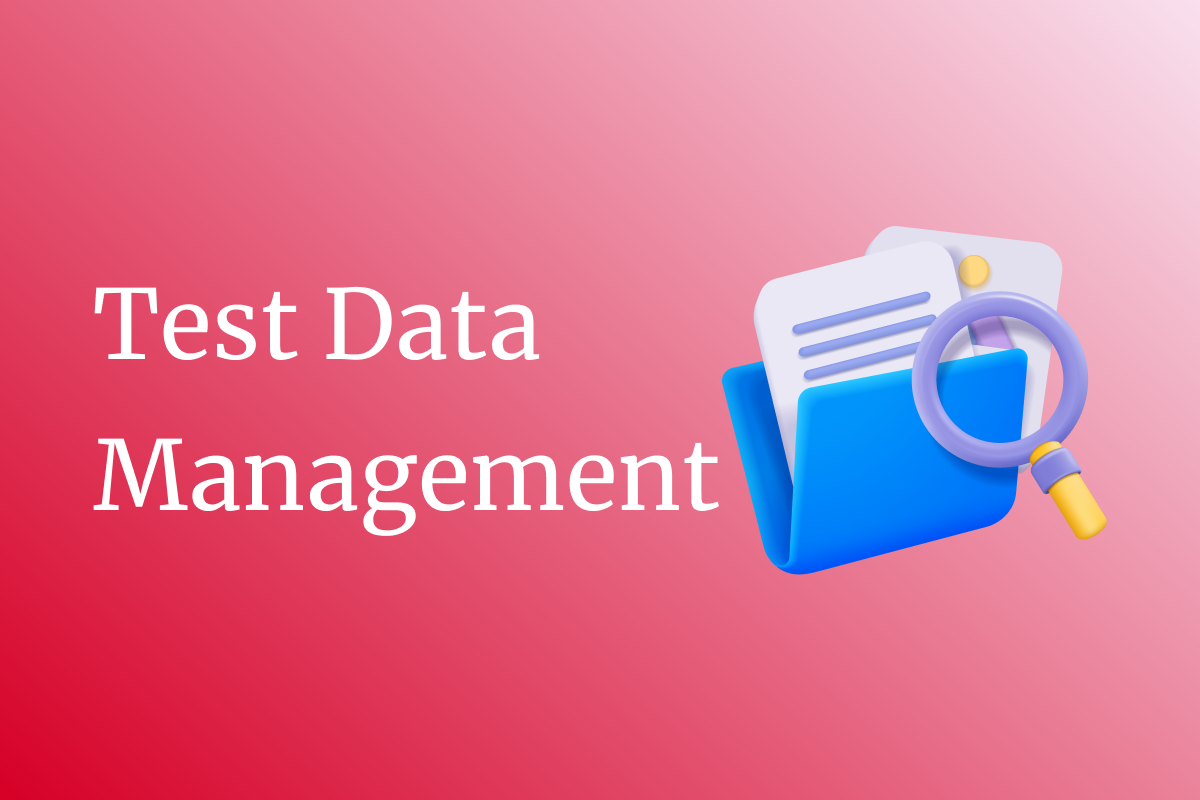Picture this scenario: business operations are rapidly evolving, driven by the relentless force of technology. In this ever-accelerating landscape, software development teams are under pressure to keep pace. The introduction of agile development processes and adopting DevOps methodologies initially appeared as a godsend. They empowered companies to stay competitive, respond swiftly to challenges, and foster collaboration across multifunctional teams.
However, here’s the twist.
To fully capitalize on these technological advancements, software development companies require efficient and effective testing strategies underpinned by robust test data management. Yet, many testing, development, and QA teams need help with creating and maintaining the necessary test data. The stumbling blocks often stem from a need for more expertise in data preparation and utilization among IT professionals, leaving them unsure of how to leverage test data to its maximum potential.
The tide is turning, though. Companies are increasingly recognizing this challenge and integrating test data management into their software quality assurance efforts. This shift is particularly noteworthy given the expected 12.7% compound annual growth rate (CAGR) in test data management by 2022, according to data from Markets and Markets.
Do you see the significance now? Test data is emerging as a game-changer. If you’re new to the concept of test data management and its associated tools, fear not—our mission is to provide you with the guidance you need to navigate this exciting terrain. Let’s dive into our blog today to delineate the optimal approaches for Test Data Management (TDM) within the manufacturing sector and elucidate its indispensable role as a tool for contemporary manufacturers.
What Is Test Data?
Test data is a core element developers and DevOps teams use throughout the software development lifecycle. It is the foundation for various testing activities conducted in both development and production environments, including security, performance, and regression testing.
Testing plays a pivotal role in the software development process, requiring access to suitable test data. Skilled UAT (User Acceptance Testing) testers and a proficient QA team contribute invaluable expertise to testing processes, offering access to authentic real-world data. However, the significance of testing extends beyond the development stage; it also encompasses testing before production begins. This is where test data management becomes essential.
Test data management, often called TDM, is a critical function that is responsible for creating, managing, and delivering test data to application teams while maintaining data privacy. This process involves creating non-production datasets designed to meet the quality requirements of software quality testing.
Historically, application teams managed data for development and testing in a fragmented, inefficient manner. Test data management rectifies this by verifying the availability of appropriate test data and guaranteeing that test cases are equipped with the correct data formats and quantities. This facilitates thorough and effective testing at every stage of software development.
How Is Test Data Different From Other Types of Data?
It’s important to understand that test data is similar to any other form of data. Fundamentally, test data serves as information that aids in software development enhancement.
Considering this perspective, the choice of test data can differ depending on the specific use case. For instance, synthetic data may be employed for targeted testing scenarios, while it is generally advisable to utilize production data when striving for faithful replication of live environments.
Types of Test Data
Now that you have a clearer understanding of test data let’s explore some common categories of test data that software developers employ.
- Valid Test Data: Valid test data comprises clean and acceptable data that a program can effectively process. Essentially, it is considered valid when an application can handle and process the data without issues.
- Invalid Test Data: Invalid data, on the other hand, refers to data in an unsupported or incompatible format. In essence, this pertains to data that a computer or application cannot accept or process due to format or content discrepancies.
- Absent Data: Absent data refers to empty files containing no information. Developers utilize absent data to evaluate how an application functions when data input is lacking.
Common Test Data Challenges
The concept of test data may initially appear straightforward, but teams frequently encounter a range of challenges during its creation and deployment. This section will explore some common hurdles associated with using test data.
Scarcity of Relevant Data
Despite the growing volume of data companies collect, accessing pertinent and safe-to-use data for testing purposes remains a challenge. Consequently, teams often resort to generating synthetic data as a workaround.
Manual Test Data Creation
While manual creation of test data can be a solution when development teams need access to meaningful data, it can prove to be exceptionally labor-intensive and costly. Many teams opt for complete automation of the data creation process to enhance efficiency.
Data Validity and Integrity
Maintaining data’s effectiveness requires ongoing effort. Over time, data can become outdated and lose context. Furthermore, developers require in-depth visibility and traceability of data throughout its lifecycle to maintain its integrity.
What Is Automated Test Data Management?
Test data management encompasses the processes of generating, optimizing, and delivering data for software testing, and the quality of this data is paramount.
Unfortunately, ensuring test data quality can be challenging when managed manually. Consequently, it becomes imperative to automate test data management whenever possible.
Let’s delve into why automated test data management is essential for achieving success in the following key aspects:
Accelerate IT Delivery
Software teams must operate with agility to remain competitive in the rapidly evolving software industry. A robust test automation strategy empowers you to create high-quality software more swiftly than manual testing. While manual testing remains relevant in specific scenarios, automation is generally more efficient in most cases.
Regulatory Compliance Verification
Effective software testing necessitates the use of precise and impactful production-like data. Achieving this while maintaining regulatory compliance can be daunting. Employing a robust data compliance tool enables safe and accurate testing. This includes data masking capabilities and the rapid generation of compliance reports.
Enhance Quality
Ultimately, software quality and delivery speed are top priorities for DevOps teams. Automated test data management guarantees the highest level of test data quality and availability, which translates to superior software quality with fewer defects and vulnerabilities.
How to Form an Effective Test Data Management Strategy
Test data management strategies exhibit variations among different companies and development environments. Here are some key considerations when crafting a test data management strategy for your organization:
Establish a Preparation Plan
Before initiating testing, data must be created from scratch or migrated from production. To optimize results, dedicate time to formulating a preparation plan. Additionally, outline best practices for your team to follow during data preparation.
Validate Your Data
Software development demands agility, and minimizing slowdowns in the process is crucial. Teams must check whether or not the data is clean, secure, and accurate before it is handed over to developers for testing. For instance, developers should not encounter issues related to HIPAA violations when testing software. Proactively verifying data ensures a swift, secure, and dependable testing environment.
Monitor and Maintain Test Environments
Efficiently managing test environments can be challenging, particularly in large-scale software development. To mitigate this challenge, centralize your test environments within a single repository that records the latest versions.
Implement Robust Governance
Working with test data entails potential security and privacy risks. Therefore, implementing robust data governance across your entire cloud environment is essential. Data governance tools can restrict developer access, monitor data movement, and track changes.
Explore Open Source Tools for Test Data Management
Consider integrating open-source tools to enhance your test data management strategy. Explore the market for suitable options. For example, Databucket is an open-source test data management tool that analyzes tests and metadata across various projects and environments. Another valuable tool to explore is Databene Benerator, which facilitates the generation of high-volume test data. Additionally, DataFactory enables test data creation by providing values for names, email addresses, phone numbers, texts, and dates.
Conclusion
Handling test data requires careful attention, as it can pose significant risks. Therefore, it’s essential to implement comprehensive visualization and automation throughout your entire development lifecycle. In the absence of complete visibility and automation, your team is susceptible to delays, security concerns, and quality issues, among other challenges. By taking these actions in our comprehensive guide today, businesses can set themselves up for success in a market that is growing ever more competitive.
ContactContact
Stay in touch with Us




